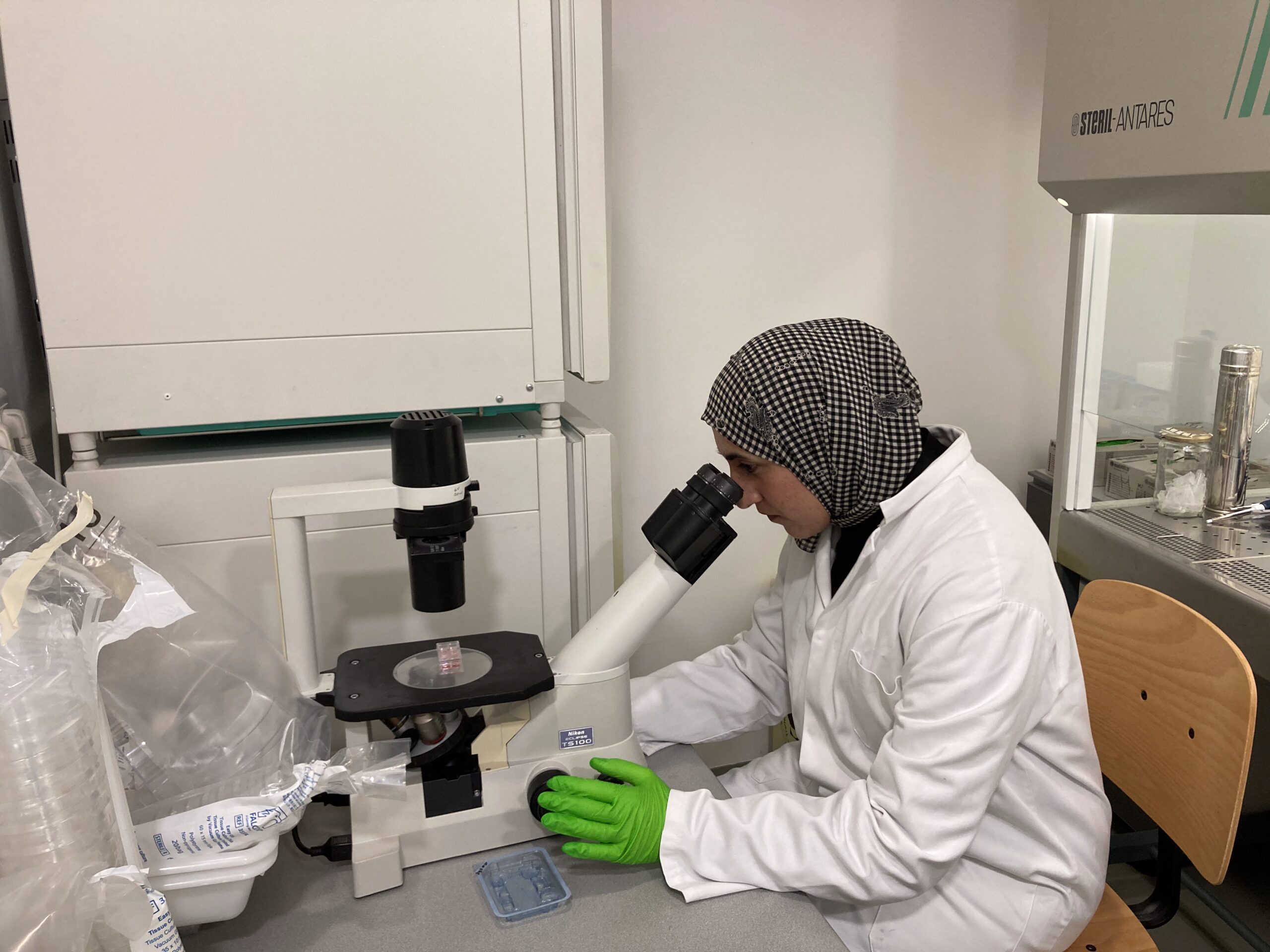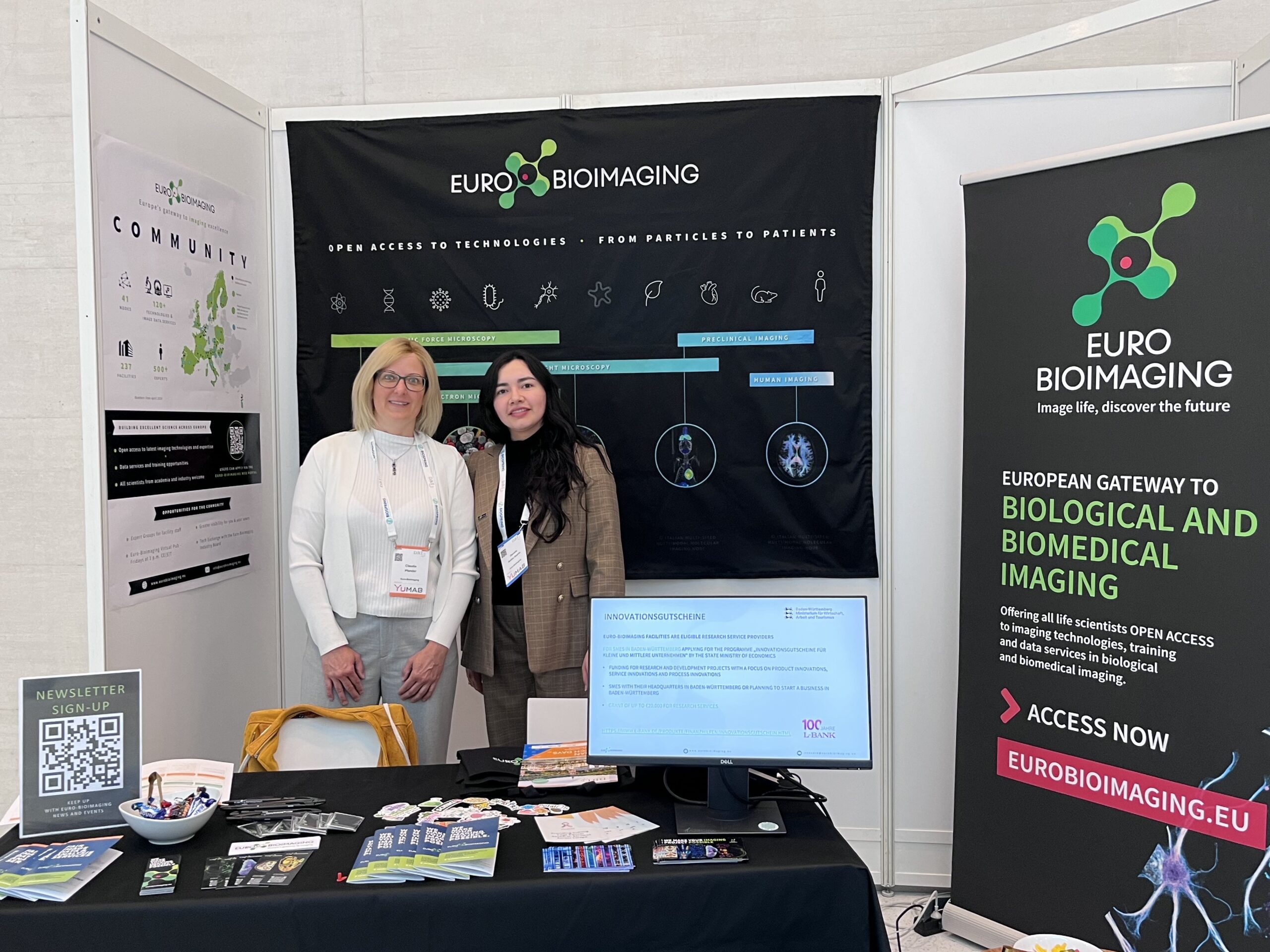
New Cancer Metabolism Series at the Virtual Pub starting May 10
On May 10, Euro-BioImaging will kick off the Cancer Metabolism Series in collaboration with the International Society of Cancer Metabolism (ISCaM). This series of lectures will take place once a month during the Virtual Pub, bringing together speakers from the cancer metabolism field with imaging experts from the Euro-BioImaging network in paired talks, or leaving the stage to cancer metabolism experts using imaging techniques, for exchange with enthusiasts from the biological & biomedical imaging fields in the Virtual Pub audience. Our first speaker on May 10 is Maria Rodriguez Colman, UMC Utrecht, with a talk entitled "Unraveling cancer metabolism with genetic encoded fluorescent based metabolic reporters."
Registration
Registration is free and open to all. Click on the link below to register to join every Friday:
https://us02web.zoom.us/meeting/register/tZwvdu6hrTsjH9audJS9-oDeoPHDVwDNl3C-
Abstract
Unraveling cancer metabolism with genetic encoded fluorescent based metabolic reporters
Cancer is a complex disease characterized by the occurrence of genetic and phenotypic variations, that exist even within the same tumours. Unfortunately, this diversity greatly contributes to therapy resistance and tumour relapse. Tumours develop under the selective pressures imposed by the microenvironment, which includes their metabolic environment. At the same time, the metabolism of cancer cells is heavily derailed, which is one of the hallmarks of cancer, and supports their uncontrolled proliferation. Our overarching goal is to understand, at the molecular level, how metabolism and metabolic perturbations, impact on tumour diversity, development, therapy response and relapse. For our mechanistic studies, we employ human-derived organoids, that faithfully recapitulate tissue architecture and cellular dynamics. By genetically introducing fluorescent-based reporters combined with 4D live imaging, we simultaneously monitor the dynamics between cell fate and metabolic changes with high temporal and single-cell resolution. I will present our recent advances in unravelling the intricate role of lactate, originally considered a waste product of the tumour, in delineating tumours’ phenotypic and genetic diversity.
About our Speaker
Maria Rodriguez Colman is originally from Argentina and obtained her PhD at the Institute of Biomedical Sciences, IRB Lleida (Catalunya, Spain). She is currently appointed Associate Professor at the Center for Molecular Medicine (CMM) at UMC Utrecht in the Netherlands. The Rodriguez Colman Lab investigates the “Metabolism of Stem Cells and Cancer” at the subcellular, cellular and tissue scale. As model systems, they use organoids models, a multicellular and hetero-cellular system able to recapitulate the complexity of stem cell and differentiation dynamics. Organoids are derived from healthy adult, embryonic or cancer tissue. Next to research analysis of bioenergetics, metabolomics and other omics, the lab performs cutting-edge 4-D live imaging to gain insights of metabolic changes at different scales with temporal resolution. They introduce fluorescent based genetic reporters to monitor metabolism in different cellular compartments and cell type specification changes. Analyses of these complex long-term live imaging data is performed with machine learning based single cell tracking coupled to in-house analytical pipelines. The Rodríguez Colman Lab investigates the molecular mechanisms by which metabolic changes drive cell fate decisions in health, development and disease.

More news from Euro-BioImaging


